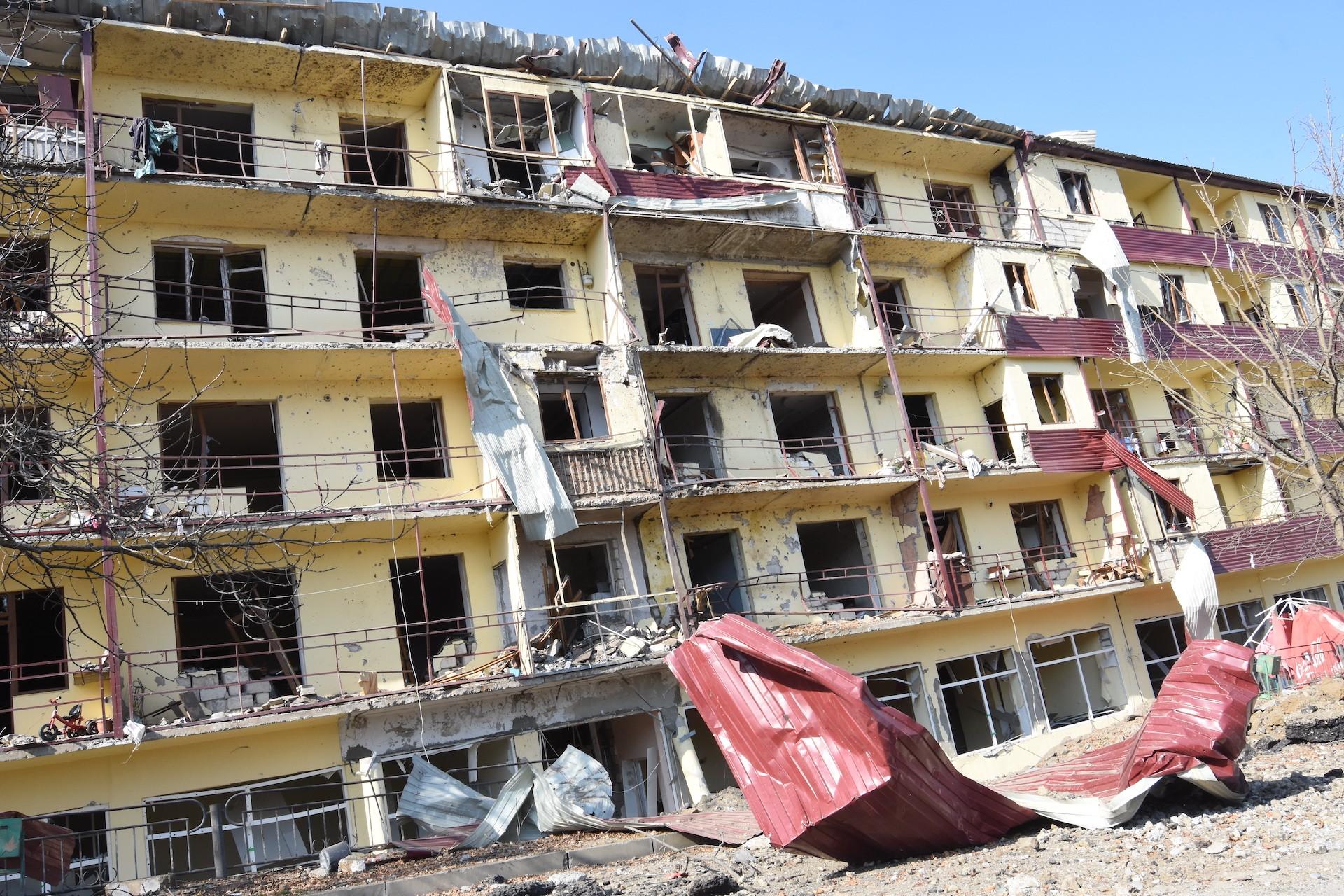
Waking Up to the Sound of Explosions: Artsakh Residents, Now Residing in Garni, Recall the Morning of September 27
The 2020 war in Artsakh 2020 left 40,000 people were left homeless.
The war started immediately on September 27. Azerbaijani forces shelling and rocketed almost all the settlements of Artsakh. Awakened by the blasts, residents fled their homes partially clothes and temporarily sheltered in the basements of the building under a torrent of shelling. They were then evacuated to Armenia, and with the support of volunteers or acquaintances temporarily took refuge in different areas. The people of Artsakh, now residing in the village of Garni, recount how the war started, how women and children managed to escape the persecution of drones and reach Armenia.
Susanna Kocharyan, 24 years-old, from Mataghis village
The situation in Artsakh had been somewhat tense since September 25. My husband and I lived in Mataghis with our two young children (the eldest is 2.5 years old and the youngest, 5 months old). My husband, Zori Kocharyan, is a division commander, a major. The troops were in their positions, and my husband went to his September 26 was the day of the Mataghis military unit. They came down from the positions to the military unit and organized a party. But my husband told me to be ready to leave because no one knows what will happen. Then he went to the positions.
On September 27, at 7:00 in the morning, shots were heard, I called my husband and asked him what I should do, whether I should leave with the children. I know how to drive a car. He said, "Get ready, I am sending a man to take you out of Mataghis.” We were living on the second floor of a military building, and I saw soldiers on the third floor telling their children to leave as soon as possible. I woke the children, dressed them quickly, took some clothes for them, got our documents, which I had already prepared at the back-door locker the night before, and hurried down to the basement.
By then, drones were hitting buildings. Our neighbor broke down the basement door and we went inside. Our voices were muffled by the blows. I could see the child crying, but I could not hear his voice. Once the shells hit, the building was no longer safe. There were rooms in the basement that were safer, so we went in. The drones started hitting the cars so that we could not flee.
Men sporadically came out of the basement, trying to find an undamaged car to get the families out of the village. There was devastation all around. Everything was destroyed. One of the relatives was driving his family away, and I got in the car with the children to leave. During the process, a drone struck very close to the car. The car lost control. We crashed. My child had a broken leg, someone else's arm was broken. Others were injured as well. There was a pregnant woman with us. There were nine people in the Opel car, including our children. We were heading towards the area manned by the Yeghnik unit. We had to leave through the mountains and forests because the main road was being bombed.
A truck came and we all got inside and reached the woods to Drmbon. There, Stepanakert city buses were waiting to meet and transport people. The bus took us went to Baluja. My father came and from there took us to Mushkapat, to their house. We stayed there for two days and the residents were then evacuated.
We couldn’t contact my husband. He sent a man who, on behalf of my husband, told me to move with my family to Armenia, where our godfather lived. At first, we moved from Artsakh to Kotayk region, Aragyugh, I stayed there with the children for a month. Then, when my mother and sisters came. The house couldn’t accommodate all of us. We moved with our family to Garni, to another acquaintance's house. My mother and sister later returned to Martuni, one to Mushkapat, the other to Gishi village. Their houses were left unharmed.
We were living in a military building in Mataghis for two years. We furnished the house, bought a car, which was blown up while I was there. We will leave this country because the Republic of Artsakh is not concerned about us. People who do not have a home should at least provide temporary housing or find a solution.
Shoghik Petrosyan, 48, from Shushi
On the morning of September 27, we woke up to the sound of explosions. People got dressed as best they could. We took our documents and ran to the basement. We stayed there for a couple of hours, watching how the weapons cache was blown up. There was a military base in Shushi. They were hitting it. I have four sons. My eldest son got dressed and went to the military commissariat. My other son was at work in Martakert. He came home, took his military ID and left. My third son is serving in the army. My daughter-in-law and I and my little boy took refuge in the basement.
The people of Shushi were running to the basements of the Agrarian University and the new Yeznik Mozyan Vocational School. The basement of the school was large. There were a lot of people. They were bringing their wives and children to the basement by car. From that day on, we couldn’t poke our heads out of the basement. Drones were hitting the Ghazanchetsots Church and residential buildings. It calmed down a bit. The men ran to get food from home. We spent the nights sitting on chairs.
My son called and told us to get out of there. He was worried. My daughter-in-law and I left Shushi on October 3. My husband took us to Jermuk, my sister's house. There were thirteen of us. There was my sister's family, myself and my sons who returned from the front after the ceasefire. There was no room in the house. We were interested in finding a house and moving. The volunteers found us a house in Garni, and we moved here.
We lived in Shushi since May 5, 1993. Our village is Hakob Kamari in Martakert (Varangatagh). The Azerbaijanis set fire to our house there. In 1992, we ran away with the clothes on our back. In 1992, during the first Artsakh war, I fled to Jermuk after taking my eldest son from the maternity hospital. The hospital was in the basement, I had just given birth to my son when they started bombing. On the night of his birth, my brother came and took us to Nerkin Horatagh, which is 3 km away from Martakert.
My older brother was studying military service in St. Petersburg. In those days he brought medicine, which he handed over to the Martakert hospital and went to the front. We were told that he had been wounded and had been taken prisoner. My father and brother were negotiating with the Azerbaijanis to save my brother, but they started bombing Martakert and evacuated the villagers. We left the village on the last day but did not manage to save my brother. Then we lost contact. We did not find my brother. My mother died from that suffering.
My family and I went to Stepanakert. Then, they started bombing Stepanakert. We got into a car and at four in the morning we reached Etchmiadzin, my aunt's house. We stayed there for ten days. Bread was rationed. We ate the bread of my aunt's family. We were ashamed. We applied to the Artsakh Committee. We were transferred to one of the boarding houses in Jermuk. We stayed there for eight months. Then, they said that the situation in Stepanakert had improved. We returned to Stepanakert, my sister's house, because we had no other house. We heard that they were giving me a house in Shushi. My husband found a house and moved there. The houses in Shushi were in bad condition, almost completely destroyed. Armenians left Shushi in the 1990s because they the Azerbaijanis frightened them.
We had a four-room apartment in Shushi and our own basement in the same building. I keep our documents safe given our bitter experience. We’re going down this road for the third time. When leaving, I took our passports, the apartment certificate. I even left the photos of my children at home. I wish we had taken our mementos with us. Throughout the war, it never crossed my mind that Shushi would be handed over. Anyone from the villages who had something expensive brought it and kept it in Shushi. They never suspected that Shushi would be lost. Even if such a thing happened, they believed they could easily take their possessions to Yerevan.
I do not believe this is the last war. My son says that if they give him a house, I will not leave Artsakh for anywhere else. He says why should anything be left for the Turks. But I think about the safety of my children. The forest is left to the Turks. The pastures are left to the Turks. How will people survive? We are in terrible uncertainty. I do not know how we will do it. How many times can we lose a home?
Lentina Hakobjanyan, 62, from Shushi
On September 27, when the shooting started, my daughter’s brother-in-law, Lernik Vardanyan, who was a commander in Drmbon, told my son that Karin Tak was safe and to take the children there. My son was serving under him. We went to Karin Tak village and stayed there for a couple of days. They said on TV that Lernik was not there, there was no news from him since the beginning of the war. They said they had taken him prisoner. He was our hope. His daughter took her children, and my daughter took her children and moved to Goris, to the house of Lernk’s friend.
I stayed in Shushi because my son was at the front. I could not leave him and go. I worked at the Yeznik Mozyan Vocational School. We stayed in the basement of that building for more than two weeks. My house was next door, but I did not dare leave the basement. There were people in the basements of all the buildings in Shushi, but they were slowly leaving. My friend, who had three sons, and I used to ask how could we leave our boys behind. In mid-October, when we saw that Shushi was being hit a lot, one of my relatives said that everyone was leaving. It was dangerous and we had to go. I went with them to Goris and from there to Yerevan. My daughter had already moved from Goris to Yerevan where she lived with her friend. I went there. It was the end of October when we arrived in Yerevan. From there we moved to Garni. One of my daughter's acquaintances, who lives abroad, gave us her house to live in.
We left behind three houses in Shushi. My daughter and son had separate 4-room apartments in Shushi. I had a house and 60 square meters of land. My daughter took out a loan of 5 million drams and renovated the apartment. My daughter's husband died in 2016. He was transporting logs for the army in his car. One fell on him. My daughter has two children. She only managed to take her husband's photo from home and a few clothes for the children.
My son also bought a 4-room apartment in Shushi. My house was very old. During the first Artsakh war we lived in Stepanakert as renters. When Shushi was liberated, they gave us that house. The war was not over yet. My husband was in Martakert at that time. He died in 1994. He was wounded during a battle. He bled to death. I have two daughters and a son. They were young at that time.
We were 100% sure that they would not give up Shushi. Now we are in state of uncertainty, I want to go to Shushi, even if my house is destroyed. I want to live in Shushi. On the day of the surrender of Shushi, I dreamt that God had come down from heaven and was standing before me. My only hope is that God will one day save us.
Armen Beglaryan, 33, from Shushi
On September 27, we were asleep. We heard explosions. We went out and saw that they were hitting us with drones. They were attacking us, and we were hitting back. I went to the military commissariat in Shushi. They gave me my papers. I came home, said goodbye to my wife and child, and left. We went to Stepanakert, to the Haykazov military unit, where they collected us and took us to Aghdam. I returned after the war.
Varduhi Davtyan (Armen’s wife): I stayed in the basement with my toddler for a week. Ours was a two-story house. My two brothers were living there. We all went down to the basement. Then I got worse because I was very scared, I was five months pregnant, I was in pain. A week later, my father brought us to Yerevan in his car. He put us up in a hotel for three days. Later, with the help of volunteers, we were given a place in Garni.
We did not wait for Shushi to be handed over. We took some clothes and left. We thought we would win, that they would not capture Shushi. They handed it over and told us to leave. There is no future in Armenia. If Russia takes Artsakh and gives us a Russian passport, we will return to Artsakh. If not, we will go to Russia.
 Videos
Videos Photos
Photos
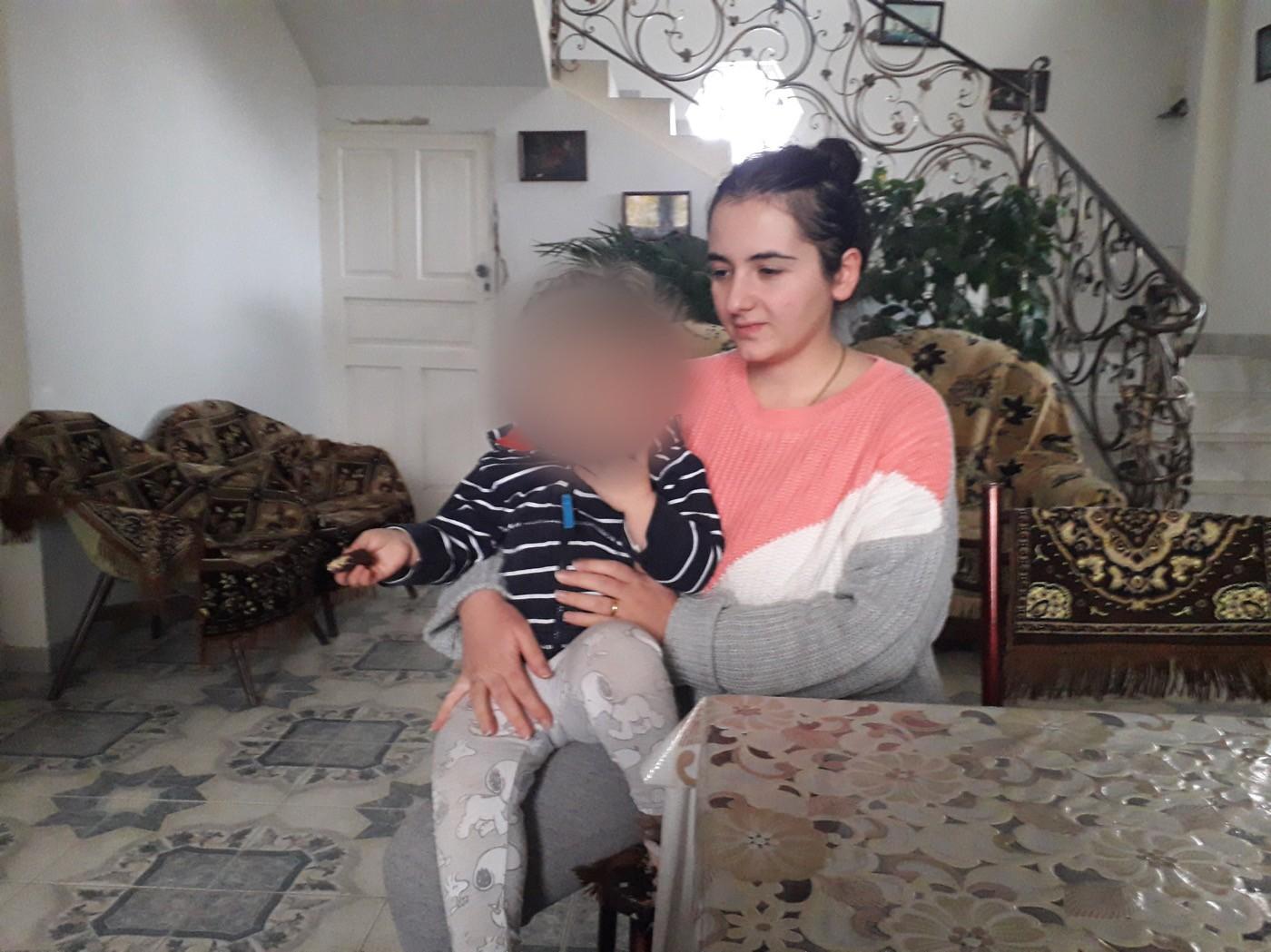
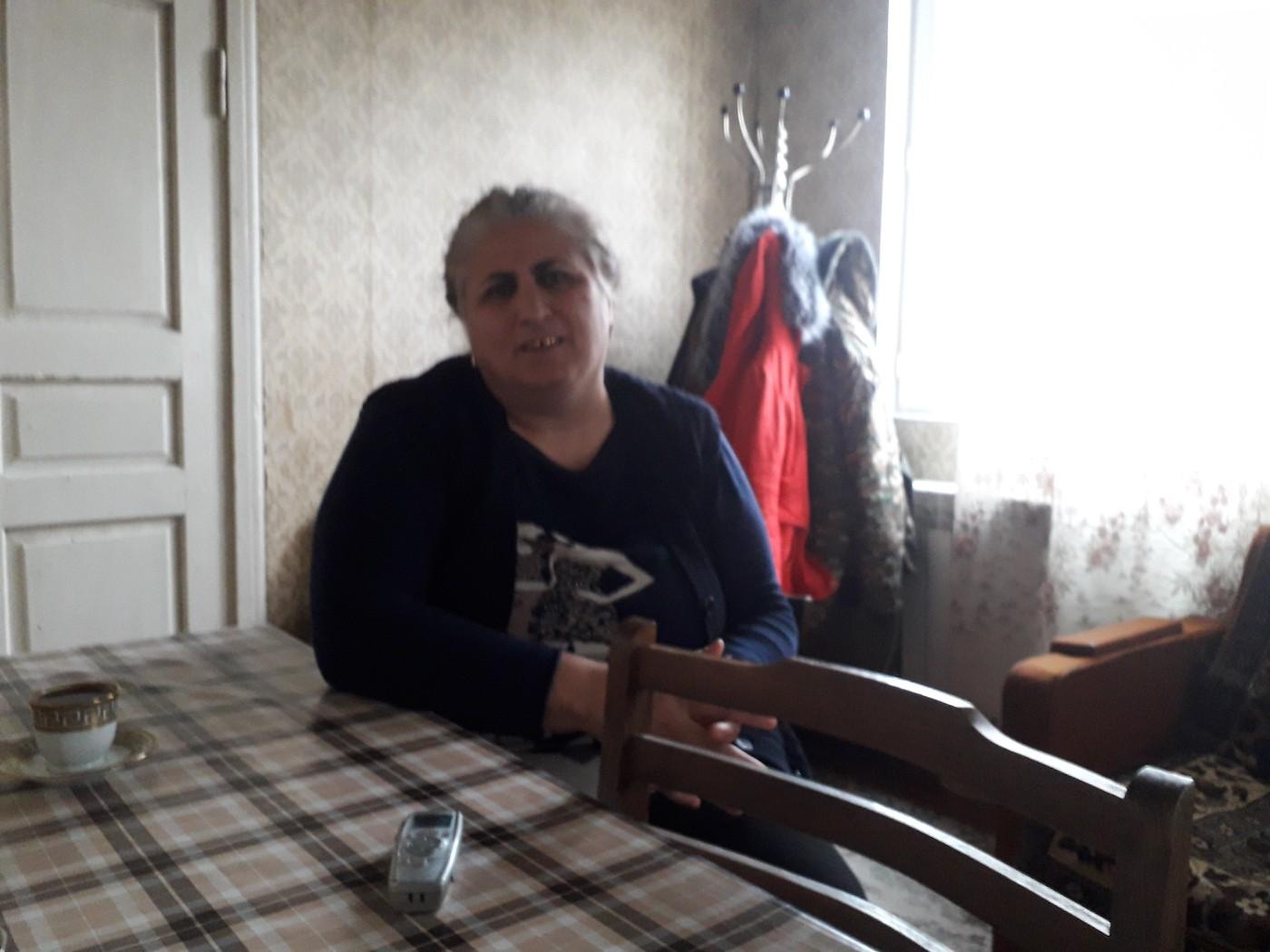
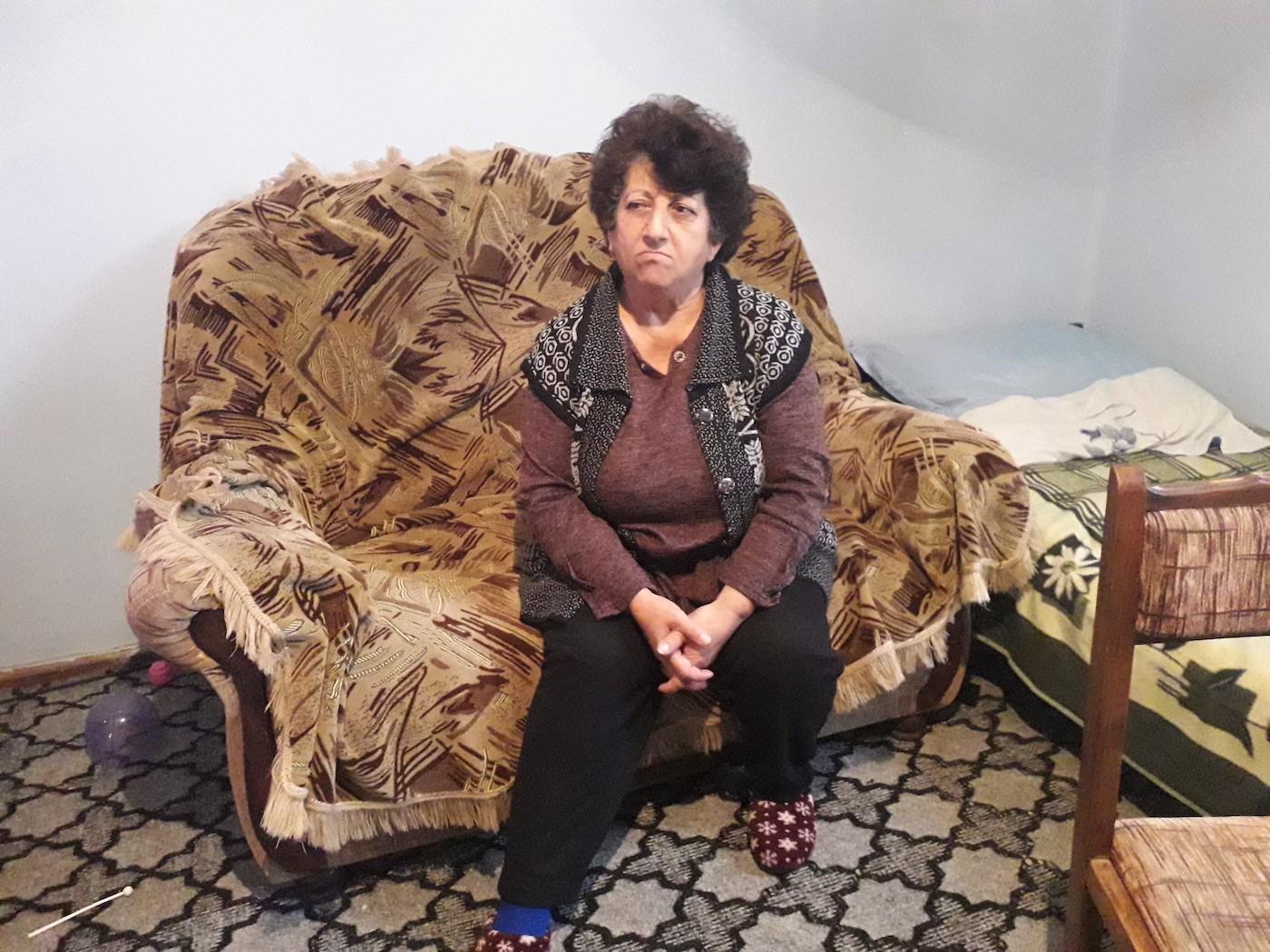
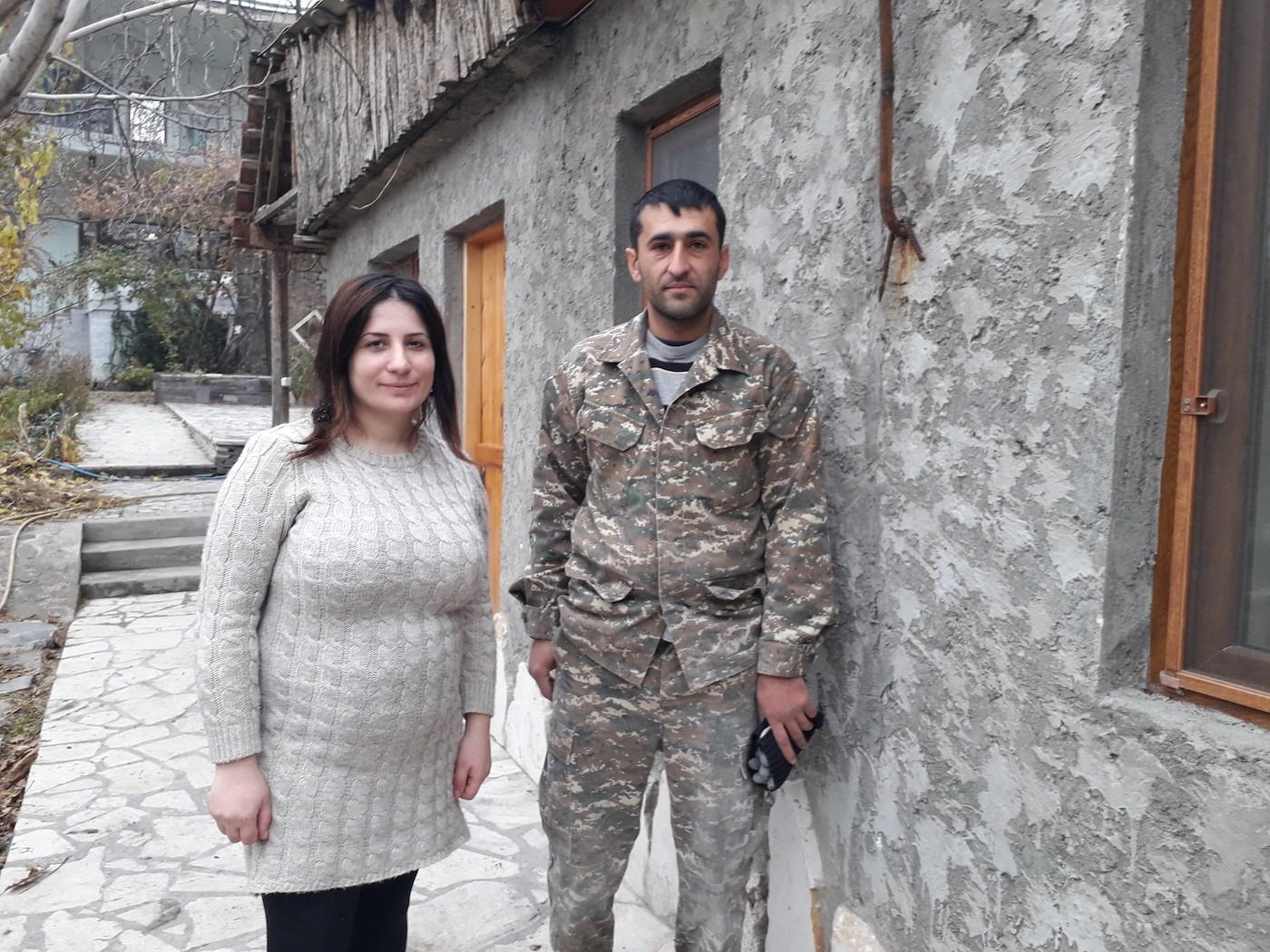
Comments (3)
Write a comment